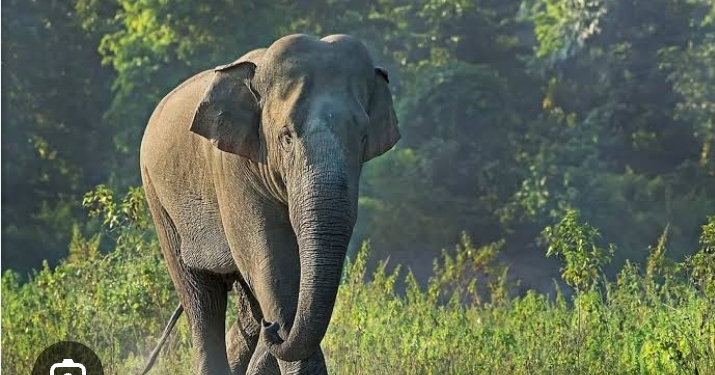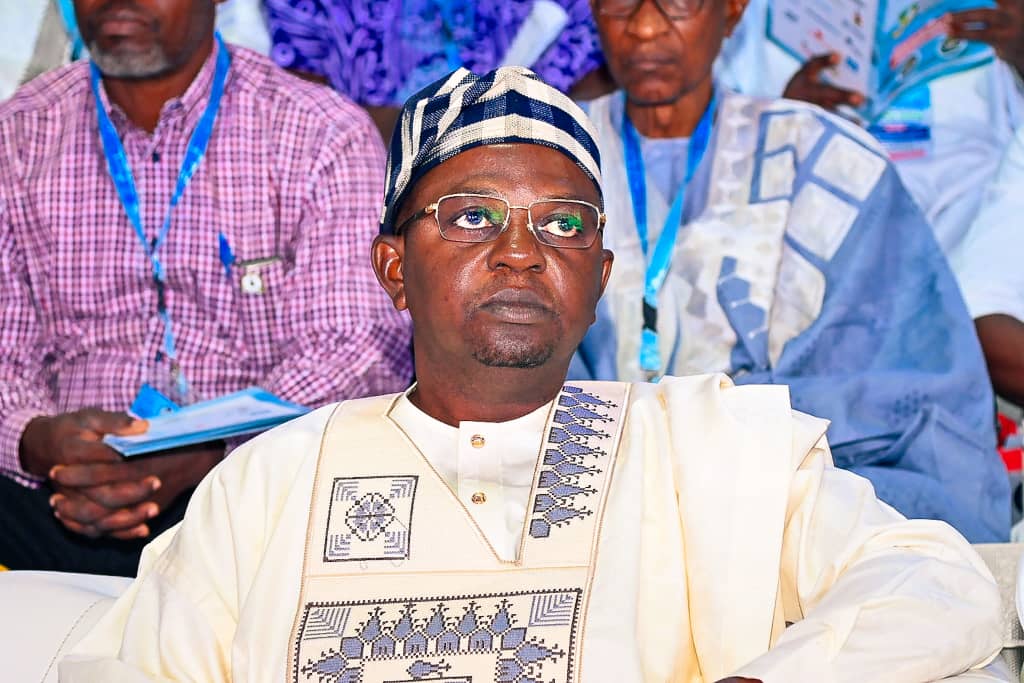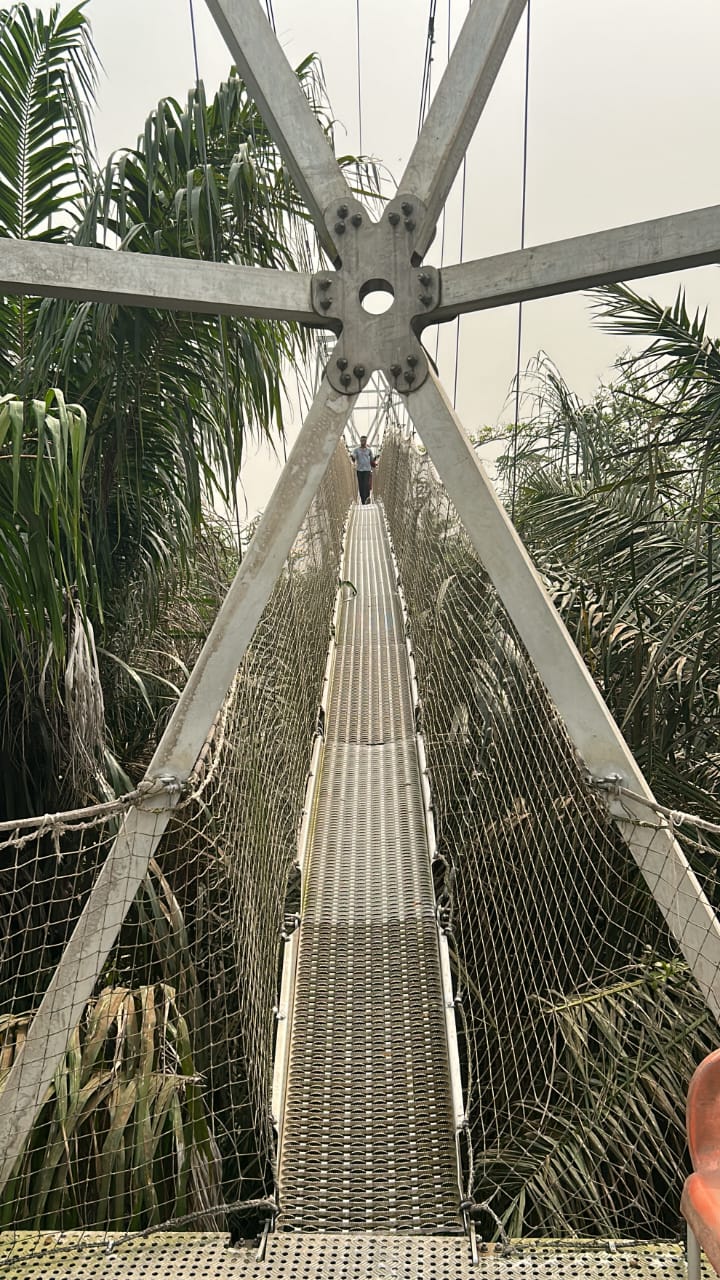Reps Schedules to Conduct Public Hearing on Nigeria Wildlife Protection Bill on October 24th

The House of Representatives is poised to convene a Public Hearing on the Nigeria Wildlife Protection Bill on October 24, 2024, marking a significant stride towards the realization of what many consider a monumental Act.
This bill aims to ensure the sustainable protection, preservation, and conservation of wild species in the country, many of which are teetering on the edge of extinction due to overexploitation through illicit trade, poaching, bushmeat hunting, and use in traditional medicine, among other factors.
If the public hearing proceeds as planned, this Bill will be among those that have garnered expedited attention, as its First Reading by the House occurred on Monday, February 26 of this year, less than 8 months ago.
The “Endangered Species Conservation and Protection Bill,” proposed by the Deputy Chairman of the House Committee on Environment, Hon. Terseer Ugbor, representing Kwande/Ushongo Federal Constituency of Benue State, aims to modernize and fortify existing laws pertaining to wildlife protection.
It introduces measures to combat illegal wildlife trade within Nigeria. For instance, the Bill advocates for bolstering the capabilities of law enforcement agencies, granting increased financial resources to investigators for their operations, and empowering judges to expedite wildlife cases and recover assets.
Furthermore, it aligns with international treaties, promotes global cooperation, and imposes stricter penalties for poachers and traffickers.
During the defense of the Bill at its First Reading, Hon. Ugbor emphasized that “By safeguarding wildlife, we are safeguarding livelihoods and ensuring a harmonious ecosystem,” underscoring that “trafficking cannot continue to jeopardize the country’s natural heritage. Wildlife trafficking is not merely a crime against nature; it poses a threat to our planet’s fragile equilibrium. Today, we take a resolute stance against all unlawful activities targeting our wildlife and forests,” added Hon. Ugbor.
The Nigeria Wildlife Protection Bill was introduced at a time when the nation’s reputation had been marred internationally, with the country being branded a “major hotspot for illegal wildlife trafficking,” despite being a signatory to various treaties against such offenses.
Wildlife encompasses all non-domesticated animals, including elephants, vultures, rhinoceroses, crocodiles, gorillas, pangolins, and various species of monkeys.
Previously, these species, along with exotic plants, were abundant, sharing space with humans. However, today, they are scarce in the wild.
The Convention on International Trade in Endangered Species of Wild Fauna and Flora (IUCN)’s red list website, due for an update on Monday, the 28th of this month, reports that more than 45,300 species are at risk of extinction, representing 28 percent of all evaluated species.
These include 41 percent of amphibians, 26 percent of mammals, 34 percent of conifers, 12 percent of birds, 37 percent of sharks and rays, 36 percent of reef corals, 28 percent of selected crustaceans, 21 percent of reptiles, and 71 percent of cycads.
According to IUCN, the Cross River gorilla, with a population estimated at fewer than 300 individuals, is Africa’s most imperiled ape.
Similarly, all seven species of vultures in Nigeria are endangered, as are elephants, which were once abundant in the nation’s forests but now number only about 300-400 individuals, prompting the government to launch the first-ever National Action Plan for 2024-2034, aimed at safeguarding the critically endangered giants. It is widely reported that Africa has lost 99 percent of its elephants within the last two decades.
With regard to plants, a report by the Federal Environmental Protection Agency has published the country’s red list, indicating that of 189 plant species, 138 are vulnerable, 18 are endangered, and 16 are at low risk, emphasizing that 18 plants urgently require attention to prevent extinction.
Opinions suggest that a combination of inadequate public awareness, feeble legislation, and minimal enforcement has impeded efforts to combat wildlife trafficking and biodiversity loss in Nigeria. Consequently, Nigeria’s wildlife has significantly dwindled, with species like lions, elephants, gorillas, and chimpanzees pushed to the brink of extinction.
Efforts by successive governments to curb these organized crimes against nature, humanity, and the nation’s common wealth through initiatives such as establishing protected areas and game reserves, inter-agency collaboration in executing operations, and prosecuting offenders have achieved some success, but there is still much work to be done.
Through interagency collaboration against wildlife trafficking, the Nigeria Customs Service (NCS), Kano/Jigawa command, in June 2022 intercepted 99 parrots being trafficked and handed them over to the National Environmental Standards and Regulations Enforcement Agency, NESREA.
The rescued wild birds were subsequently transferred to the Nigerian Conservation Foundation (NCF) for rehabilitation before being released back into the wild.
Similarly, in September 2023, the Seme Area Command of the Nigeria Customs Service announced that it had intercepted 105 wild birds concealed in two buses being smuggled through the Seme-Badagry Expressway.
The Controller of the Command, Comptroller Timi Bomodi, stated that the Duty Paid Value (DPV) of the birds was worth N24,912,928.
Bomodi added that while one of the buses was en route to Nigeria from Togo, the other was bound for Benin Republic from Katsina.
Speaking at this year’s commemoration of World Wildlife Day, themed “Connecting People and Planet; Exploring Digital Conservation” in Abuja, the Country Representative of the United Nations Office on Drugs and Crimes, UNOD, Oliver Stolpe, noted that “while seizures at Nigeria’s land, sea, and airport border points have been increasing thanks to the commendable efforts of the Nigeria customs, two-thirds of all seizures involving Nigeria were reported by authorities in other countries.
“This suggests that interception capabilities still need enhancement, while improved information exchange and cooperation with relevant authorities in countries of origin, transit, and destination offer opportunities for intelligence-led operations and parallel or even joint investigations with the aim of detecting and dismantling trafficking networks.”
While the perpetrators of wildlife crimes may still be enjoying impunity, industry observers believe that with the pace at which the House is addressing the Wildlife Protection Bill, their days are numbered.
The Africa Nature Investors Foundation (ANI), the London-based Environmental Investigation Agency (EIA), and the Wild Africa, which have been actively supporting the Nigerian government’s endeavors to combat illegal wildlife trafficking, with backing from the UK Illegal Wildlife Trade Challenge Fund and the US Bureau of International Narcotics and Law Enforcement Affairs, have lauded the swift attention given to the Bill.
In an interview, Justin Gosling, Programme Lead – Securing Criminal Justice, EIA UK, stated that the urgent treatment of the Bill is a testament to the resolve of Nigerian lawmakers to halt the criminal activities of those exploiting the country as a hub for illegal wildlife trafficking.
“Given the progress it has made in the House of Representatives this year, I would say the lawmakers are prioritizing the Bill and giving it the urgent attention it deserves as a matter of national importance for Nigeria. This is a testament to the determination of Nigerian lawmakers to put an end to the activities of criminals using Nigeria as a hub for wildlife trafficking,” said Gosling.
“There seems to be a growing recognition that wildlife crime, and other forms of environmental crime, must be treated both seriously and urgently. The Environmental Investigation Agency commends the Nigerian lawmakers and other stakeholders in supporting this Bill,” he added.
“Concerning the economic benefits the Bill, if passed into law, will bring to Nigeria,” Gosling said, “it will enhance protections for endangered animals, including birds, elephants, and pangolins, as well as plant and tree species. Preserving Nigeria’s wild heritage will attract tourists interested in wildlife experiences, generating revenue through guided tours, accommodation, and other local services, thereby contributing to Nigeria’s local and national economies. By enacting this Bill, Nigeria will be signaling its intention to join the ranks of many other countries that derive significant revenue from ecotourism,” he explained.
The EIA Programme Lead called on the Nigerian populace, especially the youth, to participate in the Public Hearing to facilitate the enactment of an Act that is robust and effectively addresses the issue at hand.
Gosling said, “I hope the public hearing will be well attended, particularly by government and private sector stakeholders. I expect people to support the Bill and put forward their suggestions to enhance the measures proposed in it for the better protection of wildlife and the eradication of wildlife trafficking in Nigeria. Given the young average age of Nigerians, I hope that young people, represented by youth groups, will be particularly engaged in supporting the Bill,
considering that it is intended to protect not only the current but also future generations who will be most impacted by biodiversity loss, climate change, and pollution.”
Wilson Ogoke, ANI Wildlife Policy Coordinator, is pleased with the steady progress of the Bill, noting that a Wildlife Protection Act would promote Nigeria’s ecotourism sector, leading to substantial revenue generation.
“Having undergone its first and second readings and now scheduled for a public hearing all within one year, I would say the Endangered Species Conservation and Protection Bill 2024 is steadily advancing through Nigeria’s legislative process and receiving the attention it deserves from lawmakers.
“No investor will allocate funds to ecotourism in a country that offers minimal protections to wildlife. However, once enacted, the Bill will enhance protections for Nigeria’s wildlife and forests, which in turn will help attract investment and expertise to Nigeria’s ecotourism sector. A revitalized ecotourism sector will create jobs and significantly contribute to local and national economies in Nigeria,” said Ani.
To the public participating in the Public Hearing, Ani advised, “I expect people to seek more information on how the Bill will enhance Nigeria’s resilience to climate change and related risks and to attend the public hearing and express support for it.”
Similarly, Wild Africa CEO, Peter Knights, expressed satisfaction with the progress of the Bill and stated that, “This legislation will greatly bolster Nigeria’s capacity to combat wildlife crime, and we hope it can be promptly enacted.”
Wildlife conservation and management are multi-billion dollar industries.
A report by the African Based Tourism indicates that gorillas play a crucial role in Uganda’s Tourism Industry, which contributed 7.7 percent of its GDP and 6.7 percent of total employment in 2018.
Highlighting Rwanda as another African country experiencing a surge in its tourism industry with wildlife resources being a major attraction, the report notes that “it costs $1,500 for tourists to see gorillas in Rwanda for an hour, and tickets are consistently fully booked months in advance.”
Analysts are optimistic that Nigeria, with its extensive mangrove, forest, and savanna vegetation belts supporting diverse biodiversity, stands a strong chance of developing a flourishing ecotourism sector driven by wildlife resources, providing a sustainable and reliable economic foundation amidst declining oil revenues.
They believe that the introduction of the Wildlife Protection Bill and the swift attention it has received from the House of Representatives mark a promising start towards realizing that vision.
By Innocent Onoh





